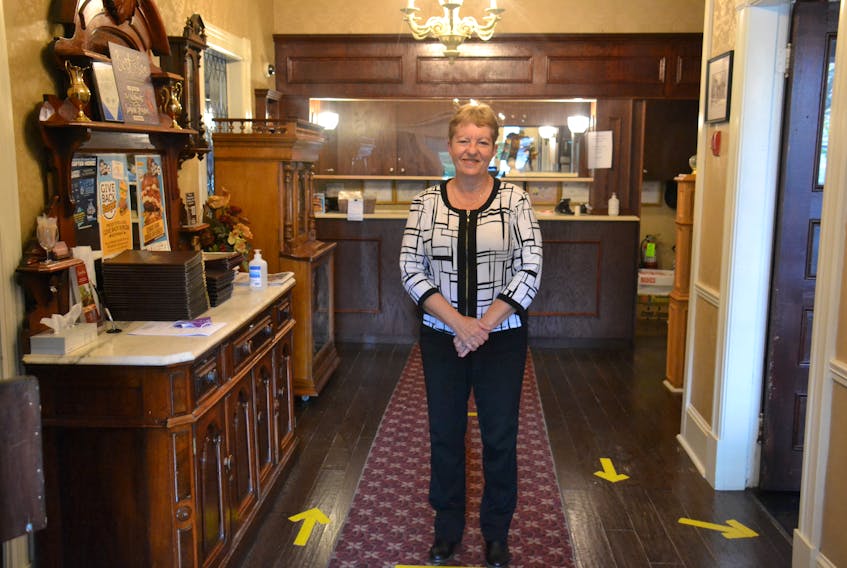Seven months into the pandemic, a new economic update has revealed the most dire economic predictions for P.E.I.’s economy have not come to pass.
However, the economic pain of the COVID-19 recession is projected to last longer than originally forecast. It has also not been borne equally across P.E.I.’s economy.
The province’s economic update is now forecasting the provincial gross domestic product to decline by 3.9 per cent by year’s end, up from 5.1 per cent as of June.
Some sectors, such as construction and manufacturing are performing well. But for operators and staff within the province’s tourism sector, uncertainty continues to reign supreme.
Last week, Charlottetown’s Dundee Arms Inn and Restaurant announced it would be closing its doors over the fall and winter for the first time in close to 50 years. Long-term stays will still be accommodated but the dining room and hotel will close on Oct. 18.
Pat Sands has worked as the manager of the Dundee Arms for 40 years. The inn boasts a roster of staff who have also put in long careers at the establishment.
"They've been here 12 to 14 years, some of them,” Sands said of the restaurant staff.
“And then the front desk person I have, she's been here 17 years. And my assistant manager has been here for 27 years. The chef started in 1999."
Sands says the inn closed its doors in the early days of the pandemic. But after re-opening in June, the promise of the Atlantic travel bubble (opening borders between the Atlantic provinces) has not borne enough fruit to keep the doors open year-round.
"The restaurant has been doing well, considering the seating arrangements because we had the outdoor deck. Accommodations were not good at all this summer," Sands said.
Sands said the occupancy in August was around 12 per cent and about 9 per cent in September. July was lower.
Normally in the summer months, occupancy would have been around 80 to 90 per cent, she said.
Hotels in P.E.I. have seen a drop of 70 per cent in room nights sold as of July, compared to 2019. Hotel occupancy rates stood at 14.2 per cent.
Sales at restaurants and bars province-wide were 36 per cent lower than last year’s level as of July.
Penny Walsh-McGuire of the Greater Charlottetown Area Chamber of Commerce said the opening of the Atlantic travel bubble in July provided some hope for tourism operators. But results were lower than expected.
“It was a welcome option for tourism operators, but it didn't generate the numbers that were expected," Walsh-McGuire said.
"The reality is, going forward, we need a plan of how we're going to try to generate tourism revenues in this province in a safe way."
As patio season winds down, public health restriction continue to restrict indoor occupancy at restaurants to 50.

The province’s economic update contains few specific details beyond the end of July.
While goods-producing sectors have fared relatively well, service-producing sectors have seen the biggest job losses to date. Compared to August of 2019, the province’s accommodation, food services, culture and recreation industries hired 3,600 fewer workers.
By contrast, investment in building construction was up 7.3 per cent on year-to-date as of July. Housing starts were up 13 per cent. Housing prices have also taken a significant jump, climbing 13.6 per cent compared to July of 2019.
The Island saw record-setting farm cash receipts, totalling almost $300 million in the second quarter of the year. This was up 8.9 per cent compared to 2019. Frozen food exports were up close to 40 per cent as of July.
On the fiscal front, the provincial deficit is now projected to be $178 million, an increase of $5.3 million from the record-setting deficit of $173 million from the June budget.









